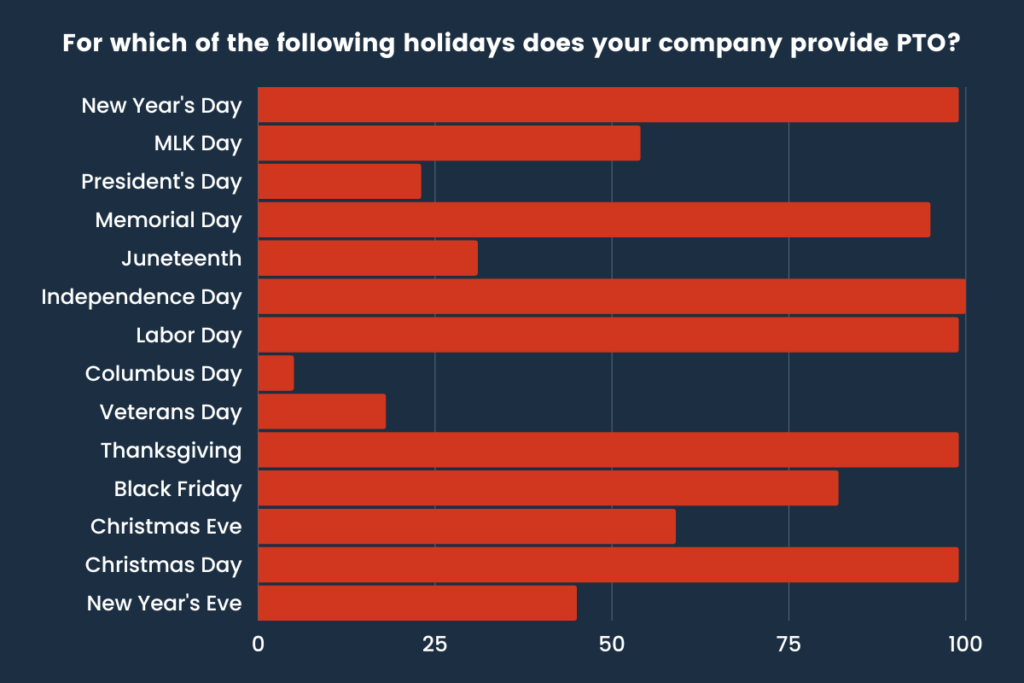When it comes to diversity, equity & inclusion (DE&I) initiatives, policies that impact day-to-day operations are at the forefront, but it’s easy to forget that developing a sense of belonging goes much deeper than that. Understanding people beyond the workplace and appreciating their differences can go a long way in creating the safe work environment that makes diverse employees want to stay with an organization. This includes recognizing what is important to employees and giving them the liberty to celebrate it on their terms. In any culture, holidays are of great value in building community and honoring family traditions, but in many cases, holiday policies are not built for a multi-cultural workforce. So how can employers remedy this? First, let’s take a look at the data.
We recently conducted a survey of our membership to see what current holiday policies are in place, which days are offered, and how they factor in to DE&I initiatives. Respondents varied by industry and company size, ranging from 50 to over 10,000 employees. While much work is still to be done, more than half (57%, to be exact) of employer respondents said they do consider holidays when creating diversity strategies. This is evidence that employers are giving their diversity initiatives extra thought and going the extra mile to create equitable policies for all.

Exhibit A
When asked which holidays are offered, the results were what you might expect. The most common U.S. federal holidays (see Exhibit A above) had the highest percentage of respondent selections, with Juneteenth being the outlier. Made a federal holiday in 2021, only 31% of employers indicated that they offer the day off to employees. While this may be disconcerting as far as DE&I efforts go, the next question gave more insight into the data. More than 64% of respondents said they currently offer floating holidays and 27% of the respondents who don’t said they are considering offering them in the future.
A floating holiday is a flexible paid day off from work, given as a substitute for a public holiday and typically taken on a day chosen by the employee. On average, our respondents said that they offer two floating holidays per year, with some offering as many as eight or more. However, the policies surrounding these days certainly differ. One respondent stated that all of their holidays are floating and can be used for any occasion meaningful to the employee (birthdays included!), some stated that floating holidays can accrue and rollover, while others stated that they must be used within the calendar year. Additionally, some respondents noted that the floating holidays must be used for religious and cultural reasons only, while others have no requirements and allow their employees to use them whenever they would like.
The greatest takeaway from this data is that floating holidays can be a simple way to make employees feel understood, accepted, and appreciated. After all, America is a melting pot of various races, ethnicities, religions, and cultures and it only makes sense to offer the flexibility to accommodate them all as equitably as possible. Want to see the data in more detail? DirectEmployers Members can log in to DE Connect to view the full Inclusive Holiday Survey results – and for tips on creating inclusive holiday celebrations in the workplace, check out this post from disability advocate Haley Moss!

